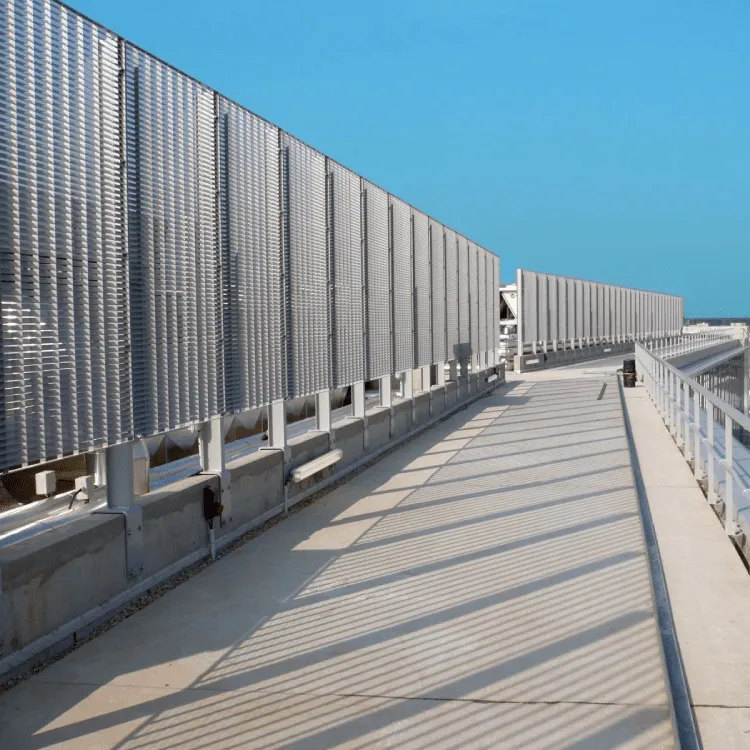- Industrial zone, South of Anping Town, Hengshui, Hebei, China.
- sales@hfpetromesh.com
- +86-18931809706
Corrosion-Resistant Steel Grids for Enhanced Durability and Performance in Construction Projects
The Versatility and Strength of Galvanized Steel Grid
Galvanized steel grids are an essential component in various industries, celebrated for their durability, strength, and corrosion resistance. This innovation in steel manufacturing involves applying a protective zinc coating to steel, enhancing its longevity and making it suitable for various applications. This article delves into the benefits, applications, and maintenance of galvanized steel grids.
Understanding Galvanization
The process of galvanization involves immersing steel in hot zinc to form a metallurgical bond. This reaction creates a protective layer that prevents oxygen and moisture from reaching the underlying steel. As a result, galvanized steel exhibits excellent resistance against corrosion and rust, crucial in environments where exposure to the elements is a concern. The zinc coating typically lasts for decades, ensuring that the underlying steel remains intact and functional.
Key Benefits of Galvanized Steel Grids
1. Corrosion Resistance One of the most significant advantages of galvanized steel grids is their resistance to corrosion. In many industries, metal structures are exposed to harsh weather conditions, chemicals, and other corrosive agents. The zinc layer significantly extends the life of the steel grid, reducing the need for frequent replacements and repairs.
2. Strong Load-Bearing Capacity Galvanized steel grids are known for their impressive load-bearing capabilities. They can support heavy weights and resist deformation, making them ideal for applications such as flooring, walkways, and staircases in industrial settings. Their strength ensures safety and reliability in demanding environments.
3. Low Maintenance The durability of galvanized steel grids translates to lower maintenance costs over time. With minimal upkeep required, industries can save on labor and material expenses. This feature is particularly appealing in high-traffic areas where wear and tear are common.
4. Versatile Applications The adaptability of galvanized steel grids makes them suitable for a wide range of uses. From industrial platforms and safety guards to architectural elements in buildings, their robust properties are utilized across various sectors, including construction, transportation, and energy.
Applications of Galvanized Steel Grids
galvanized steel grid

Galvanized steel grids find application in diverse fields
- Construction In the building industry, galvanized steel grids are used for flooring systems and as supports in non-slip surfaces. Their robust design enhances safety by preventing slips and falls.
- Agriculture Farmers use galvanized grids for livestock pens, feeding areas, and flooring in animal shelters. The corrosion-resistant properties ensure a clean and sanitary environment for the animals.
- Transportation Steel grids play a pivotal role in bridges and highway infrastructure. They provide safe pedestrian walkways and serve as essential components in cargo handling areas.
- Waste Management Galvanized grids are prevalent in waste management facilities, where they support heavy loads and resist corrosive environments found in waste treatment processes.
Maintenance of Galvanized Steel Grids
Although galvanized steel grids require minimal maintenance, routine checks can extend their life even further. Regular inspections for any signs of damage or wear are advisable, especially in environments with heavy usage. Cleaning the surface with mild detergents can help preserve the protective layer, ensuring that the steel beneath remains intact.
Conclusion
Galvanized steel grids are a testament to modern engineering, combining strength, durability, and versatile applications. Their ability to withstand harsh conditions while requiring minimal maintenance makes them indispensable in various industries. As technology evolves, the use of galvanized steel grids is likely to expand further, contributing to innovative solutions in infrastructure and construction. With their myriad benefits, galvanized steel grids will continue to play a vital role in enhancing safety and efficiency in our industrial landscape.
-
The Power of Pyramid Shaker Screen - A 3-Dimensional SolutionNewsOct.24,2024
-
Exploring the Versatility and Durability of Steel GratingNewsOct.24,2024
-
Revolutionizing Drilling Efficiency with Steel Frame Shaker Screens for Mud Shale ShakersNewsOct.24,2024
-
Potential of Shale Shaker ScreensNewsOct.24,2024
-
Offshore Pipeline Counterweight Welded Mesh - Reinforced Mesh in Marine EngineeringNewsOct.24,2024
-
Revolutionizing Offshore Pipeline Stability with Concrete Weight Coating MeshNewsOct.24,2024
